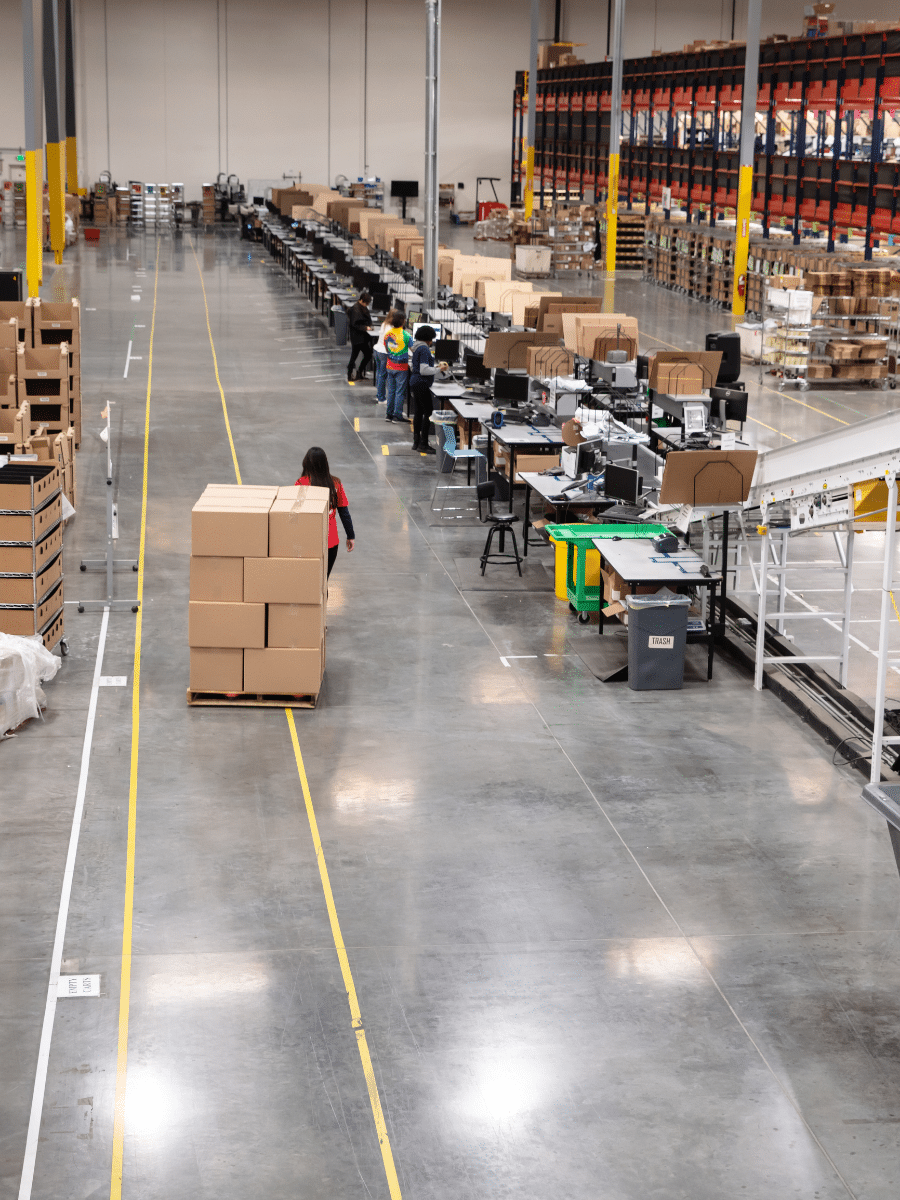“To Outsource or Not to Outsource? Unravelling the Warehouse Conundrum!”
Are you a business owner juggling various aspects of your supply chain? Does the idea of delegating some of those responsibilities to a third-party logistics (3PL) provider seem like a dream come true?
But wait! Just like any business decision, there are two sides to every coin. This blog post delves into the fascinating world of warehousing and third-party logistics. We’ll help you weigh the pros and cons of using a 3PL provider for warehouse services, and give you some tips to pick the perfect partner for your business.
Let’s dive right in!
Pros of Using Third-Party Logistics Providers for Your Warehouse
- Cost Savings: One of the most significant benefits of working with a 3PL provider is the possibility of cost savings. You may save money on labour, rent, utilities, and other expenditures by outsourcing your warehouse needs. Moreover, 3PL firms frequently have established contacts with shipping carriers, which might result in lower pricing.
- Expertise: 3PL providers are logistics experts with vast knowledge of industry best practises. They can assist you in optimising your supply chain, streamlining your procedures, and ensuring the seamless running of your warehouse.
- Scalability: As your business grows or faces seasonal fluctuations, a 3PL provider can easily scale up or down to accommodate your needs. This flexibility allows you to focus on your core business, while your 3PL partner handles the logistics.
- Technology: 3PL suppliers are recognised for keeping up with the latest technology, including cutting-edge inventory management systems and tracking tools. You may profit from these new solutions without having to invest in them directly by collaborating with a 3PL.
- Enhanced Productivity: By delegating your storage facility tasks to a third-party logistics partner, you gain valuable time to devote to other crucial areas of your venture, such as publicity, product advancement, and customer relations.
Cons of Using Third-Party Logistics Providers for Your Warehouse
- Reduced Authority: Assigning your storage facility tasks to a third-party logistics collaborator entails relinquishing a degree of control over your distribution network. This could be a concern for entrepreneurs who favour direct involvement or possess unique procedures that might not be effortlessly managed by a third-party logistics entity.
- Navigating the difficulties of working with third-party logistics partners may be a mammoth endeavour, especially when communication issues emerge. Obstacles may arise because the logistics partner works in a different time zone or nation than the customer, resulting in a slew of issues that will surely lead to unwelcome delays and misunderstandings, finally resulting in a pronounced and unfavourable impact on client satisfaction.
- When collaborating with a third-party logistics (3PL) vendor, exercise caution regarding the presence of concealed expenses. Though enlisting the services of a 3PL may result in financial advantages, there also exists the potential for covert charges or levies. Therefore, it is imperative to conduct thorough due diligence on all agreements before affixing one’s signature, in order to obtain a comprehensive understanding of the breadth and nature of the costs implicated.
- Putting complete reliance on a 3PL provider runs the danger of generating a dependency that limits your company’s capacity to revert to in-house operations or switch to a new source, should the need arise. Before entering into any agreements, it is therefore prudent to carefully consider the benefits and downsides of collaborating with a 3PL supplier.
- When you outsource your inventory and shipping procedures to a third-party logistics supplier, you are depending on them to satisfy your quality requirements. Failing to do so may tarnish your company’s reputation, potentially costing you customers and income. As a result, before collaborating with any 3PL provider, it is critical to properly examine their dependability and reputation, as well as to prepare a complete service level agreement (SLA) outlining the agreed-upon quality standards and performance indicators.
Selecting the Right Third-Party Logistics Provider
Consider putting the following methods into action in order to get the most out of your partnership with a third-party logistics (3PL) provider while minimising the possible drawbacks:
Define your goals and requirements: When choosing a 3PL partner, you should clearly explain your goals and particular needs, such as those connected to inventory management, shipping, and fulfilment. This should be done before defining your goals and precise criteria. This will make it possible for you to select a service that is able to cater to your specific requirements and direct you towards accomplishing your goals.
Don’t go with the first 3PL company you find; do some research first. Choose the best service provider for your company by comparing the various options’ services, prices, and performance records.
Check for experience and expertise: Confirm that they have a successful track record in your business and that they possess the essential skills to efficiently handle your storage requirements before selecting a 3PL provider. Assess their level of experience and knowledge before making your decision.
Evaluate their technology: Assessing a third-party logistics provider’s technology is crucial. Examine their inventory management, tracking, and integration technology. You can determine if their technological skills match your company’s by assessing them.
Assess scalability and flexibility: Find a 3PL provider that can adjust to the changing demands of your company. Verify that they have the flexibility to meet either a sudden increase or decrease in demand.
Review their customer service: Customer service is crucial when choosing a third-party logistics supplier. This includes competent and sympathetic people who can swiftly manage your problems and fix any issues. A reliable company values customer happiness and strives to suit your demands while giving excellent service.
Verify their quality control processes: Be sure the 3PL you choose has stringent quality control processes in place to handle your inventory and shipments. You may learn about their quality assurance measures by just inquiring. A reputable 3PL company will adopt rigorous quality control techniques to make sure your stock is handled and dispatched with care and that product quality is maintained.
Request references and testimonials: Communicating with current customers is the best way to learn about a 3PL provider’s service quality and customer happiness. If you want to know if a service provider lives up to your expectations, talking to their present customers is the best way to do so. Reputable 3PL companies won’t mind you contacting previous customers and will gladly offer recommendations.
Many businesses see the benefits of outsourcing their warehouse operations to third-party logistics providers. Loss of control, difficulty in communicating needs and expectations, unexpected costs, dependence, and quality control issues are just some of the potential negatives to keep in mind.
Consider the benefits and drawbacks of outsourcing, as well as the strengths and weaknesses of the 3PL service, before making a final choice. An honest 3PL should lay out all the details for you, including pricing, so that you can make an educated choice that fits your company’s requirements.
To make an informed decision, carefully weigh the pros and cons, and follow our guidelines for selecting the right 3PL partner for your business. By doing so, you’ll be well on your way to optimising your supply chain and focusing on what truly matters: growing your business and serving your customers.



